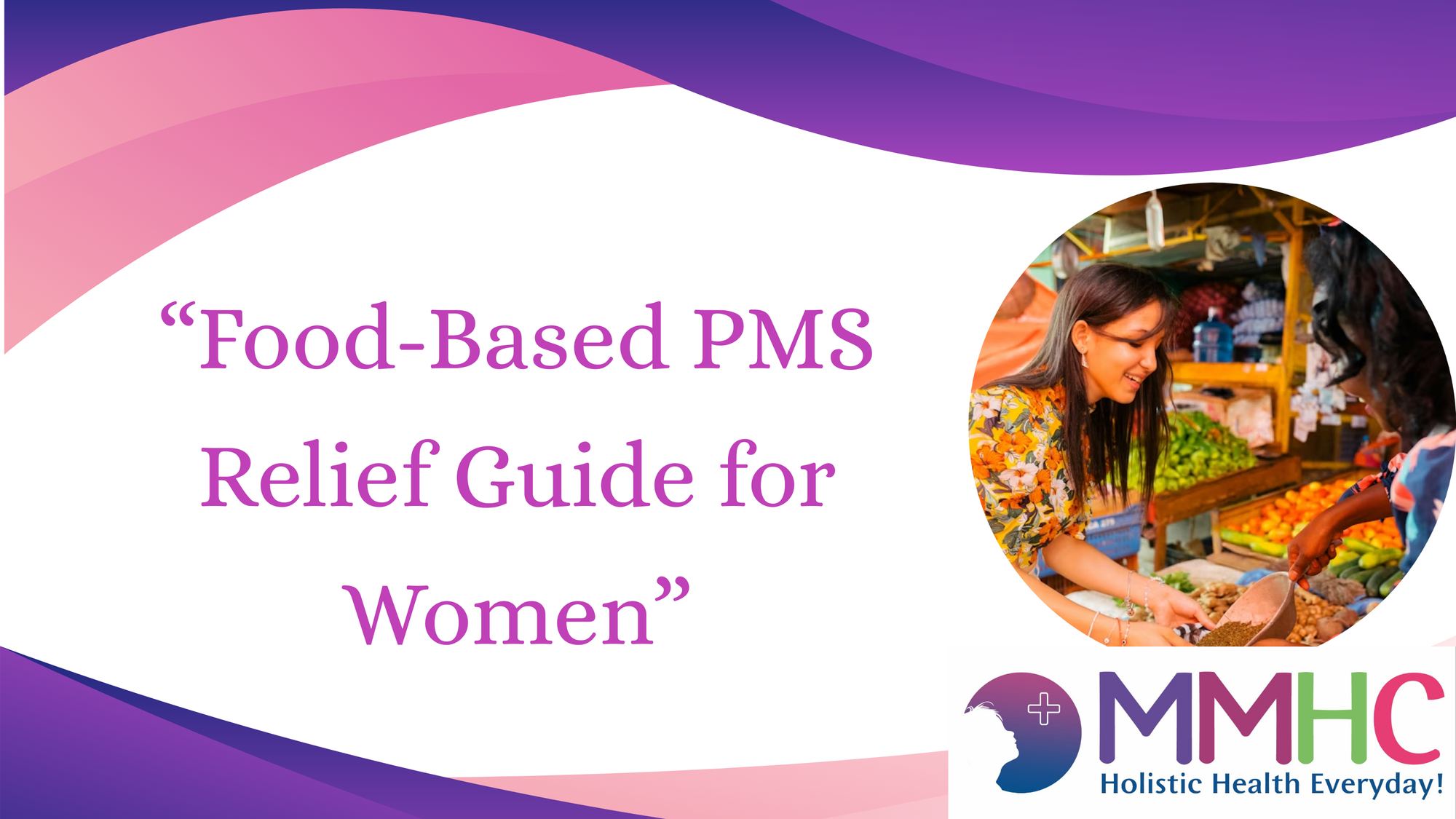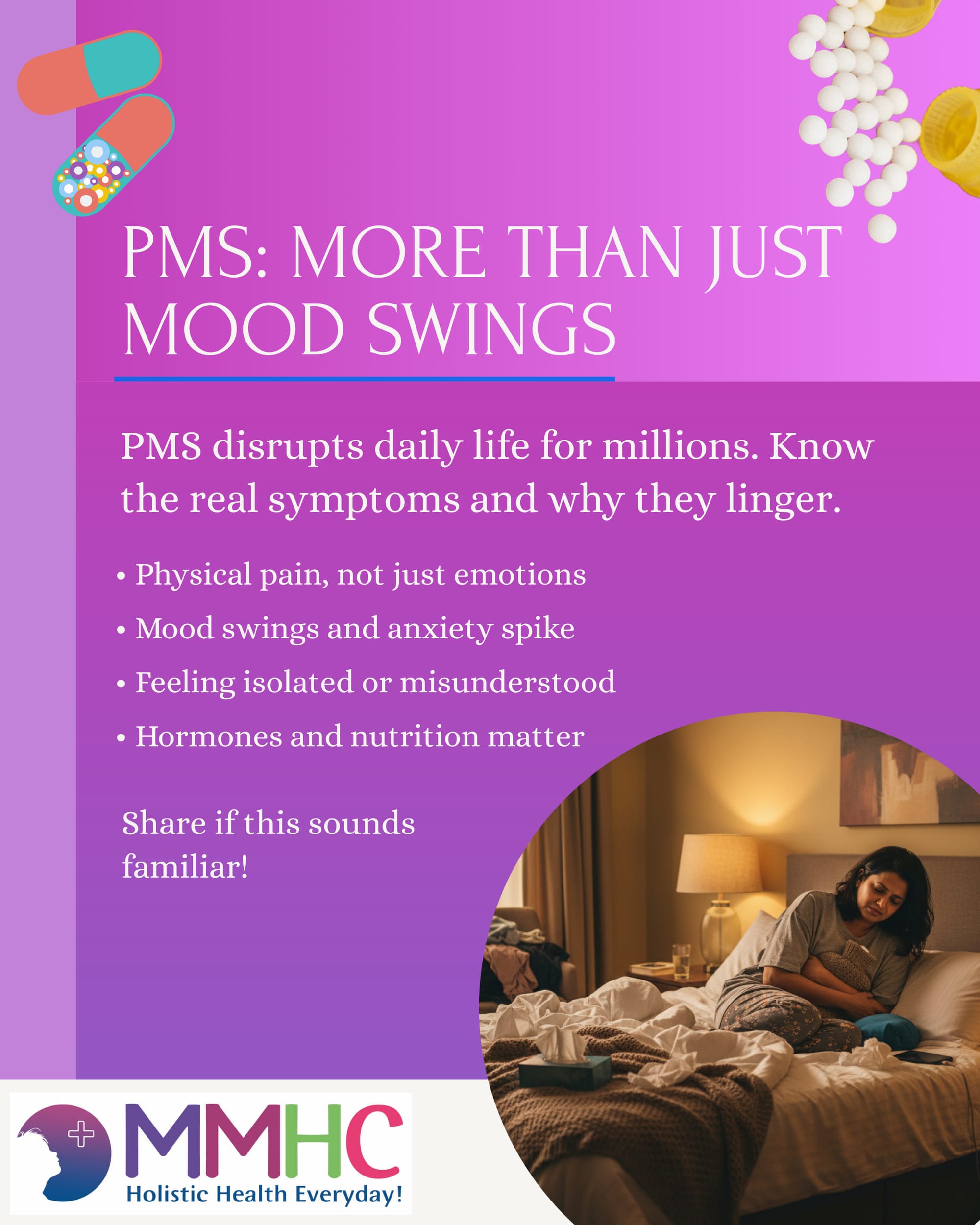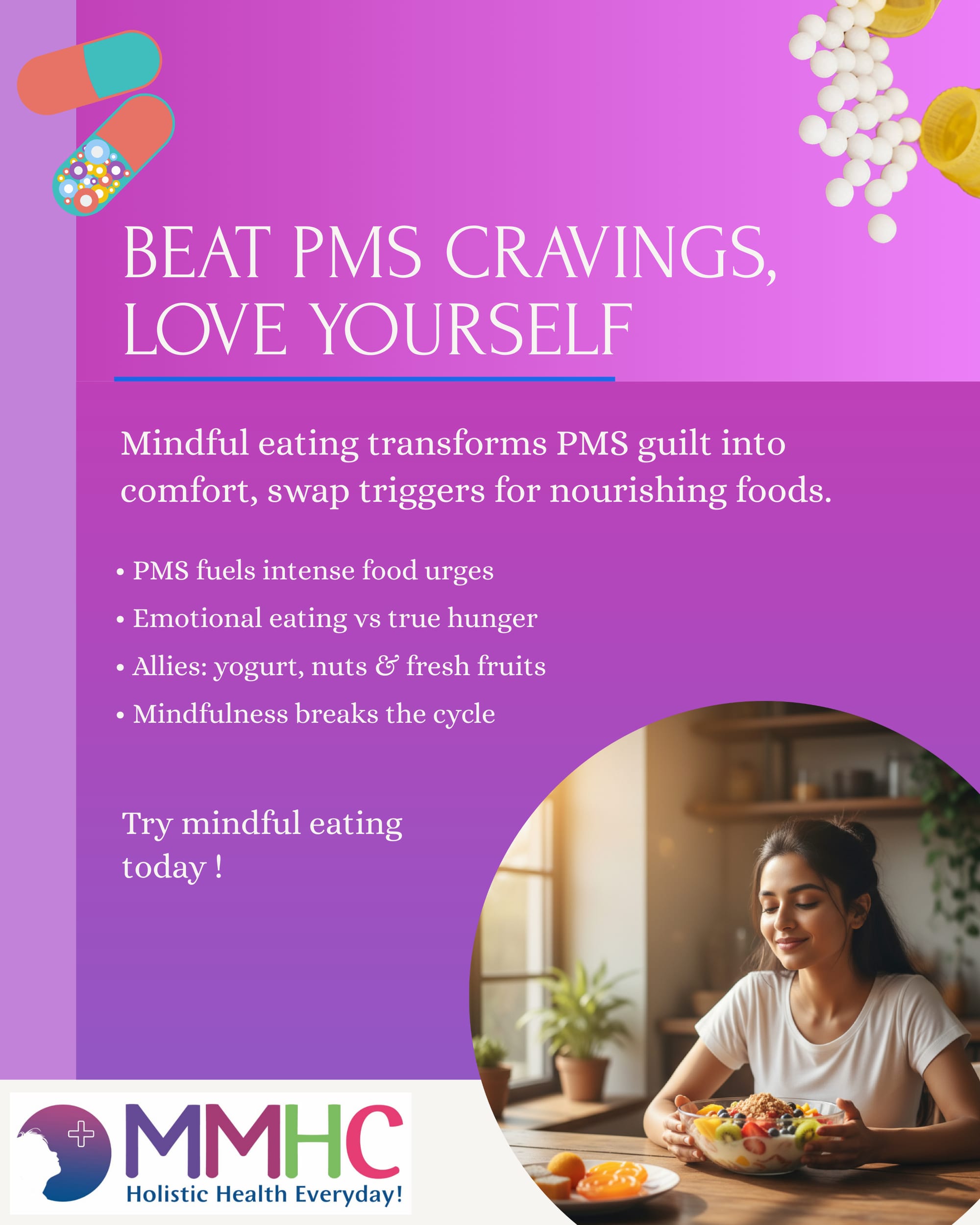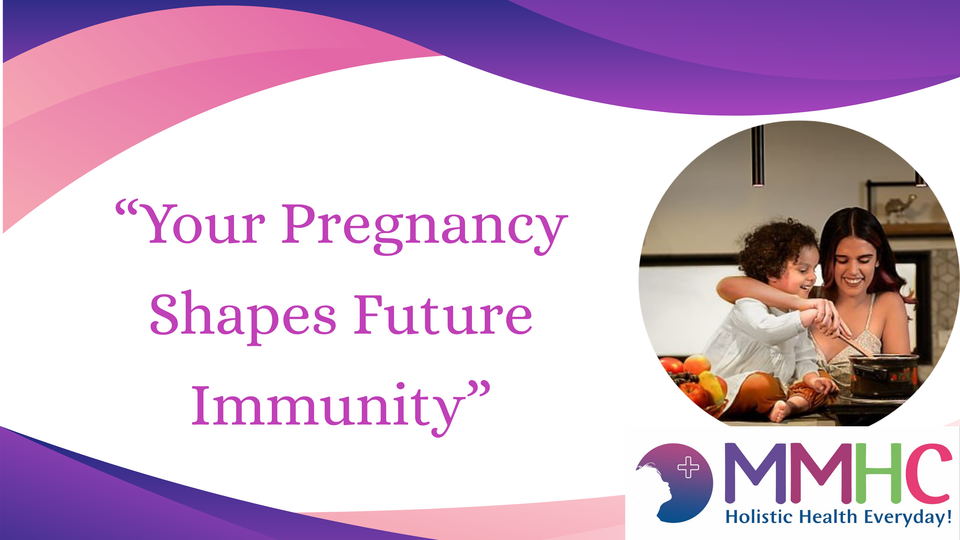Goodbye Cramps, Hello Control: A Food-Based Guide to Tackle PMS
A new study shows that your diet can help you fight off PMS. This guide distills the science into a straightforward, easy-to-implement plan designed to help you ease cramps, mood swings and fatigue by eating smart throughout your cycle.

A new study shows that your diet can help you fight off PMS. This guide distills the science into a straightforward, easy-to-implement plan designed to help you ease cramps, mood swings and fatigue by eating smart throughout your cycle.
The Real Culprit Behind That Craving: "PMS" & What You Can Do About It

This is a how busy Tuesday morning looks in city like Mumbai. You're gridlocked on the notorious Western Express Highway traffic, running late, and a wave of irritation hits you. You feel bloated, a dull backache is pulsating in your lower back and all you can think about is that sweet chai and pack of salty wafers. It's not just a bad day — it's the all-too-familiar, maddening slide into Premenstrual Syndrome (PMS) that makes your already demanding city life that much harder. What if there was a way to take the edge off this monthly torment without a pill, simply by being smarter about what's on your plate?
For millions of women around the globe, PMS is a prevalent condition that disrupts life day to day, influencing not only mood and energy but also the level of physical comfort. A Systematic Review of the Role of Vitamin D and Calcium in Premenstrual Syndrome - PMC Living in a fast-paced city, where stress and irregular eating habits are prevalent, these symptoms can seem more than ever too much to handle. But what if the answer to feeling better isn't in complicated drugs but in the simple foods you eat? Recent systematic reviews demonstrate robust diet-PMS associations and provide therapeutic options that are easily accessible, acceptable, low-cost, and have few side effects. This guide will give you the power to understand this link and provide you with actionable, science based dietary solutions so you can take back control of your menstrual hormone balance and live a better life.
What Is PMS, Really? (And Why It Hits So Hard?)

Premenstrual Syndrome (PMS) is a common disorder characterized by a series of physical and psychological symptoms that most women experience during the luteal phase of their menstrual cycle: typically 7–14 days before their period begins. Frontiers | Impact of Nutritional Diet Therapy on Premenstrual Syndrome It's incredibly common, affecting an estimated 30–40% of women of reproductive age and 20–32% of premenopausal women. So, if you experience these symptoms, you are definitely not alone.
The symptoms of PMS can vary widely from person to person and can be categorized into:
Physical Symptoms: These might include swelling, weight gain, breast tenderness, headache, nasal obstruction, tingling sensations, cramps, and general pain.
Psychological Complaints: These often manifest as irritability, anxiety, depression, mood swings, and food cravings.
Although the exact cause of PMS is unknown and is probably multifactorial, some researchers state that hormonal factors and micronutrients deficiencies could be involved. Please be aware that there is a more severe form of PMS called Premenstrual Dysphoric Disorder (PMDD), which can seriously impact a woman's quality of life and usually necessitates medical treatment. This guide is for you if you want to learn about the common PMS symptoms and find out how you can use diet to alleviate these symptoms.
Why What You Eat Changes How You Feel!?

The relationship between your diet and your mood in the days leading up to your period is deeper than you might imagine. There can be individual variation in response, research is always ongoing but the overall evidence suggests there are some very clear winners and losers when it comes to diet and hormone balance.
One of the most significant findings from recent systematic reviews is the role of specific micronutrients. Low serum levels of calcium and vitamin D during the luteal phase of the menstrual cycle have been found to cause or exacerbate PMS symptoms. Ovarian sex hormones, which peak during the luteal phase, can actually induce enzymes that degrade vitamin D, leading to a reduction in its serum levels and potentially worsening PMS symptoms. Similarly, decreased serum calcium levels have been reported during the premenstrual period in some women, and calcium deficiency during this phase can exacerbate symptoms like depression, hallucination, and restlessness.
Beyond specific micronutrients, your overall dietary pattern plays a crucial role. A "Western diet," characterized by high consumption of fast food, carbonated drinks, and processed meat, has been positively associated with PMS. Conversely, healthy and traditional nutritional habits, rich in fresh, unprocessed foods, fruits, vegetables, and healthy fiber, have an inverse correlation with PMS symptoms. This suggests that diet is an essential modulating factor in reducing and managing PMS symptoms.
The relationship is also bidirectional: PMS can influence eating behaviors. Women with PMS may experience increased caloric intake and preferential carbohydrate selection during the premenstrual period, often as a form of self-medication to boost serotonin levels and improve mood. Understanding this cycle is the first step to breaking it.
The PMS Nutrition Toolkit: What to Eat & What to Skip?
Taking control of your PMS symptoms through diet is an empowering journey. Here's a step-by-step action plan, to help you make informed food choices.
Your Nutritional Allies: Eat These for Relief
These are the nutritional powerhouses that can help restore balance and alleviate symptoms.
Calcium Heroes: Calcium is strongly linked to reducing PMS symptoms, including depression, irritability, and general pain. Studies have shown that women with diets rich in calcium are at a lower risk of developing PMS.
Local Options: Incorporate dairy products like yoghurt (dahi) and milk into your daily routine. Think about a refreshing glass of chaas (buttermilk) or a bowl of dahi with your meals. Other great sources include leafy greens like palak (spinach) and methi (fenugreek leaves), which are readily available in local markets.
Vitamin D Stars: Vitamin D plays a crucial role in hormone balance and can help reduce symptoms like breast tenderness, diarrhea/constipation, fatigue, and depression.
Local Options: sunlight is a primary source, dietary sources include fortified milk and cereals. Fatty fish like raw as (Indian salmon) and bangda (mackerel) are also good sources.
Note: Even with ample sunlight, vitamin D deficiency is common.
Complex Carb Champions: These provide sustained energy and help stabilize blood sugar, which can prevent mood swings and irritability. They also support serotonin production, a neurotransmitter that improves mood.
Local Options: Opt for whole grains like jowar (sorghum), ragi (finger millet), bajra (pearl millet), brown rice, and whole wheat rotis. These are staples in Indian cuisine and offer excellent fiber content.
Magnesium & B Vitamin Boosters: Magnesium supplementation is considered effective in preventing dysmenorrhea and PMS, and when combined with vitamin B6, it can effectively reduce premenstrual stress and anxiety. Vitamin B6 alone has also shown effectiveness in reducing anxiety in older women and can be as effective as broad-spectrum micronutrient formulas for PMS symptoms.
Local Options: Magnesium-rich foods include nuts (almonds, cashews), seeds (pumpkin, sunflower), legumes (chickpeas, lentils), and dark leafy greens. For B vitamins, include whole grains, eggs, and lean meats.
Omega-3 Fatty Acid Friends: Omega-3s have anti-inflammatory properties that can help with pain and mood.
Local Options: Fatty fish like raw as and bangda are excellent sources. Vegetarian options include flaxseeds (alsi) and chia seeds.
Know Your Enemies: What Makes PMS Worse?
These foods can exacerbate PMS symptoms and are best consumed in moderation, especially during your luteal phase.
Sugary Culprits: Foods high in refined sugars (like many processed snacks, desserts, and sugary drinks) cause rapid blood sugar spikes and crashes. This can intensify mood swings, irritability, and fatigue.
Think about limiting that extra spoonful of sugar in your morning chai, cutting down on packaged biscuits, and reducing consumption of overly sweet mithai or carbonated drinks.
Refined Fats & Fried Foods: Diets high in unhealthy fats, especially saturated and trans fats, can contribute to inflammation and worsen pain symptoms.
This means being mindful of the amount of oil in your cooking and reducing intake of popular street foods like vada pav, samosas, and bhajiyas, which are often deep-fried.
Salty Offenders: High sodium intake can lead to increased fluid retention and bloating, a common and uncomfortable PMS symptom.
Processed foods, packaged snacks, and many restaurant meals (including some street food) can be surprisingly high in salt. Try to cook more at home to control sodium levels.
Caffeine and Alcohol: While a morning coffee or an occasional drink might seem harmless, excessive caffeine and alcohol can disrupt sleep, worsen anxiety, and contribute to dehydration, all of which can aggravate PMS symptoms.
Balance Is Key: Tuning Your Meal Timing for Hormone Health
Instead of three large meals, consider eating smaller, more frequent meals throughout the day. This helps maintain stable blood sugar levels, prevents extreme hunger (which can lead to poor food choices), and can reduce bloating. Aim for balanced meals that combine complex carbohydrates, lean protein, and healthy fats.
Do You Need Supplements? Calcium & Vitamin D Could Help (But Check With a Pro!)

The evidence for certain supplements in managing PMS is compelling.
"The results indicated that low serum levels of vitamin D and calcium during the luteal phase of the menstrual cycle could contribute to the incidence and exacerbation of PMS symptoms. Moreover, the mean severity and number of PMS symptoms decreased after calcium and vitamin D supplementation.
Calcium and Vitamin D: Numerous studies highlight the effectiveness of calcium and vitamin D supplementation in reducing the severity and number of PMS symptoms. For instance, a placebo-controlled study showed that supplementation with 500 mg of calcium plus 200 mg of vitamin D decreased the severity of PMS symptoms. Another study noted that calcium supplementation resulted in an approximate 50% reduction in total mean symptom scores, with significant beneficial effects on depression, mood swings, headache, irritability, and breast tenderness.
Crucial Caution: While promising, it is absolutely crucial to consult a healthcare professional, such as a Women's Health Specialist or Nutritionist, before starting any supplementation. They can assess your individual needs, check for deficiencies, and recommend the correct dosage to ensure safety and efficacy. For example, high doses of vitamin D (e.g., 50,000 IU weekly) are sometimes recommended for deficiency, but this should always be under medical guidance.
Tame the Cravings: Eat With Awareness, Not Guilt

PMS is known to cause strong food cravings and people already coping with bad eating habits get caught in a cycle of bad eating followed by guilt. It seems that Premenstrual Syndrome (PMS) can affect our eating patterns where women are more prone to consume "comfort foods" that contain more sugar and fat. Eating mindfully being aware of your hunger and fullness cues, noticing the taste of your food can be an effective strategy. When around the luteal phase of your cycle between craving ever so much, pause and ask yourself are you actually hungry? or an emotional craving!. If it's a craving, see if you can guide it towards your "allies," not your "triggers."
Ready to Reclaim Your Cycle?
The relentless cycle of PMS can feel debilitating, impacting your personal life, professional productivity, and overall well-being in a demanding cities. The frustration of feeling out of control every month, battling bloating, mood swings, and the magnetic pull of unhealthy cravings, is a shared experience for many women.
But you don't have to surrender to this monthly struggle. This science-backed dietary plan offers an empowering strategy to break that cycle. By making conscious, informed choices about the foods you eat, you can significantly influence your menstrual hormone balance, reduce the intensity and frequency of PMS symptoms, and reclaim your quality of life.
Ready to take the next step towards a more balanced and comfortable cycle?
We encourage you to consult a Our MMHC Team. Our experts can provide a personalized dietary plan tailored to your unique body, lifestyle, and specific needs, helping you navigate your PMS journey with confidence and support.
TL;DR:
You can reduce PMS symptoms like cramps, mood swings, and fatigue by making smart food choices throughout your cycle. Science shows a strong link between what you eat and how you feel before your period.
PMS is linked to hormonal fluctuations and deficiencies in key nutrients like Calcium and Vitamin D, which can make symptoms worse.
What to Eat & Avoid
EAT MORE of These "Allies":
- Calcium: Yogurt (dahi), milk, chaas, leafy greens (palak, methi).
- Vitamin D: Fortified milk, fatty fish (rawas, bangda), and sunlight.
- Complex Carbs: Whole grains (jowar, ragi, bajra, brown rice) for stable energy and mood.
- Magnesium & B Vitamins: Nuts, seeds, legumes, and eggs to reduce stress and anxiety.
- Omega-3s: Fatty fish, flaxseeds (alsi) to fight inflammation and pain.
EAT LESS of These "Enemies":
- Sugar: Causes blood sugar crashes, worsening mood swings. (Limit sugary chai, mithai, biscuits).
- Salty Foods: Increases bloating. (Cut down on processed snacks and street food).
- Refined & Fried Foods: Promotes inflammation. (Go easy on vada pav, samosas, bhajiyas).
- Caffeine & Alcohol: Can disrupt sleep and increase anxiety.
💡 Pro Tips:
- Eat Small, Frequent Meals to maintain stable blood sugar.
- Consider Supplements: Calcium and Vitamin D supplements are strongly supported by research for reducing symptoms, but always consult a doctor before starting any new supplement.
- Manage Cravings Mindfully: Pause before a craving to see if it's hunger or emotion, and try to choose a healthy "ally" instead of a sugary "trigger."
You don't have to surrender to PMS. By shifting your diet to include more fresh, whole foods and reducing processed items, you can reclaim control over your cycle and feel better. For a personalized plan, consult a healthcare professional or nutritionist



